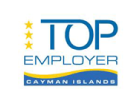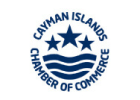Human Resources: Why Small Business Should Invest in HR Management
by Jakub Jahnl on April 28, 2023
Human Resources is critical to any company’s success, no matter if you are a big or small organisation. However, it is often overlooked by small businesses, and this can be a costly mistake in the long run.
As a small business, you may feel that you don’t have the time or resources to invest in employee management, but human resources is a vital part of running a successful business. It can save you money in the long run when done strategically. If you want to improve employee engagement, be a strong talent attractor, retain your top talent, and increase productivity/profitability, you should be investing time into strengthening your human resources practices.
The Importance of Human Resources
HR in any business, whether big or small, plays a crucial role in developing, reinforcing and changing an organisation’s culture. Having a sound HR backbone for your organisation allows employees to understand the company’s values. Employees feel confident they are in a role that meets their career goals and feel supported to do their best work every day.
HR in any business, whether big or small, plays a crucial role in developing, reinforcing and changing an organisation’s culture. Having a sound HR backbone for your organisation allows employees to understand the company’s values. Employees feel confident they are in a role that meets their career goals and feel supported to do their best work every day.
As a business owner, having compliant HR policies and procedures that support your staff to do their best work also benefits you. Investing in your HR function will increase performance and productivity that money can’t buy.
Do Small Businesses Need HR?
Many business owners start strong with the launch of their business but struggle with people management as the company begins to flourish. Small businesses can easily miss the importance of HR, as they feel they are too small to need it; with just a few employees, business leaders often feel like they have a strong understanding of the people they hire and manage.
However, as your small business grows, leaders often find there isn’t time to deal with the day-to-day people management, recruitment, training/development, benefits management, payroll and all the other items that come with running a business. When this happens, the focus on people can easily get lost. Ignoring people management is costly and can affect employee satisfaction, culture, and long-term business success.
When employees don’t feel supported, their motivation to perform is impacted. Underdeliver in your HR function, and you’ll see a knock-on effect on your bottom line. People, culture, and business success go hand-in-hand. Can you afford to function without HR? Probably not – the smaller the organisation, the more significant a single mistake/issue/loss of staff member can have on your organisation.
Human Resources Options for Small Businesses
You now understand the importance of investing in the HR function of your business, but how exactly do you do this? As a small business, you must consider cost and scale as part of your decision. We have laid out three potential options that could be applicable depending on your organisation’s needs.
Option One: Hiring an HR professional in-house
The Society of Human Resources Professionals (SHRM) recommends that when a business employs 15 staff members, it should hire an HR professional. If you feel that your organisation is in a stage where you may be growing more rapidly or are already nearing 15 employees, it may be time to consider someone on staff permanently (whether full-time or part-time) to oversee the HR function of your business.
Pros:
- A dedicated HR professional can help you navigate the complex, ever-changing labour laws that apply to your business and keep you in the know of regulation changes that may affect your business.
- An in-house HR professional can be more accessible to employees, increasing employee satisfaction and retention.
- Easy access to tailored support as they know and understand your business and can help resolve issues as and when they arise.
- An in-house professional can more directly affect the company culture of the business by hosting effective team discussions and engaging events based on team members’ personal needs and interests.
Cons:
- There might not be enough work for a full-time HR professional depending on the size of your team, but you could consider a part-time employee in this instance.
- You must pay an employee’s salary and benefits, which could be a high cost for a small business.
Option Two: Engaging an Outsourced HR Consultant
Support from an outsourced HR consulting service may be best suited for specific projects in a small business where support is required – for example, redefining your onboarding process or writing company policies/contracts.
Pros:
- Allows you to take more of a hands-off approach to the HR function, leaving the work you decide to pass over in the hands of the professionals, following your guidance.
- These are professionals who have a strong understanding of common HR practices and local laws/regulations to help ensure you stay compliant.
- Access to a wide range of professional expertise.
- A dedicated point of contact who can help you with specific issues as they arise.
- A partner who has access to a network of other experts and can offer guidance on all areas of your business, not just HR.
Cons:
- Outsourced HR Consultants cannot always provide the level of guidance that businesses might require. Small businesses must know what kind of support they should expect before engaging an outsourced HR consultant.
Option Three: Getting HR Advice
In small business, sometimes you just need a little advice to steer you in the right direction. An outsourced HR professional engaged purely to advise you can help with queries you are too busy to deal with when operating a small business.
Pros:
- This is the most cost-effective option, as the work remains in your hands, and you are only paying for advice on specific areas where you need additional support and then actioning it yourself once you have clear what needs to be done.
Cons:
- It might not be effective if you don’t know exactly what areas you need support and advice in.
- This option leaves the actual HR work in your hands as a business and instead just provides you with guidance on what to do, so if you are looking for a hands-off approach where someone takes the work off your plate, this won’t be the right option.
CML’s Human Resources Consulting
CML’s HR Consulting team offers a full service for all sizes of businesses. With CML’s HR Consulting service, we become an extension of your team; we are there to guide you every step of the way and take the stress out of HR processes so you can focus on running your business.
If you are interested in learning more about our HR Consulting Services, please get in touch with our HR team to discuss how we can assist you with your HR journey.
SHARE THIS ARTICLE
Recent Articles









